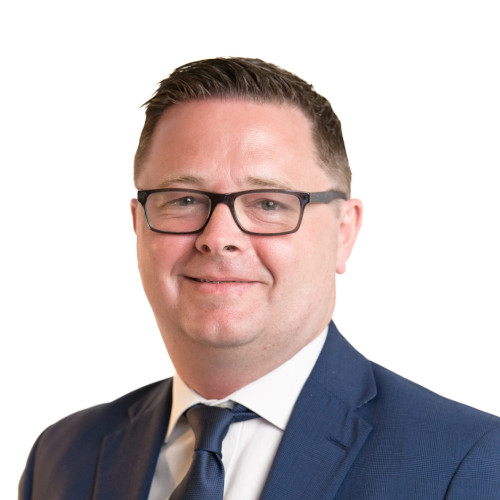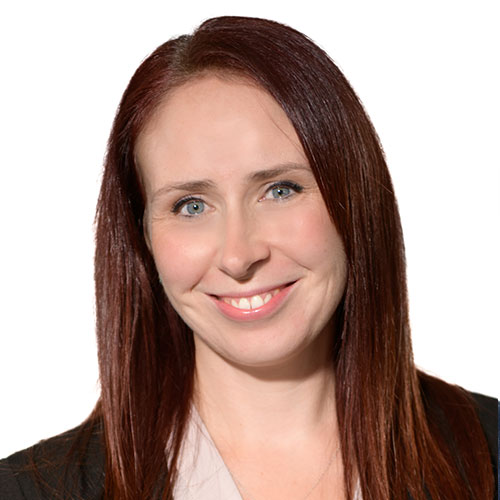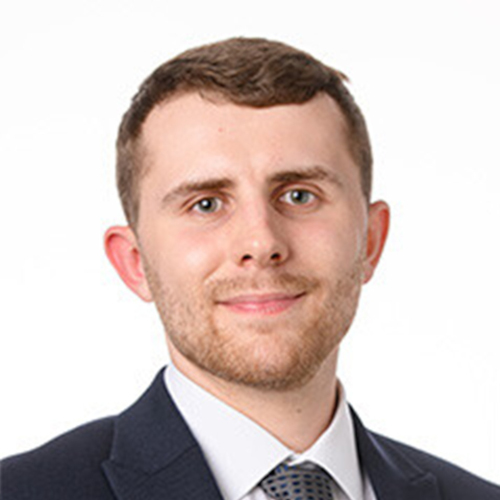Specialist General Medical Council (GMC) Defence Lawyers
The General Medical Council (GMC) is the independent regulator for doctors in the United Kingdom (UK). Given their role of protecting patient safety and improving medical education and practice in the UK, they set professional standards, oversee education and training and where they deem it necessary, take action against doctors accused of putting patient safety or public confidence in the profession at risk.
Why choose Olliers?
Olliers Solicitors have a team of experienced solicitors on hand to provide legal advice and assistance to doctors facing investigation or proceedings brought by the GMC. Our experts have dealt with the full spectrum of cases, from allegations of poor performance through to serious misconduct, dishonesty and cases concerning the health of doctors themselves.
We are able to provide expert representation for doctors throughout the course of their dealings with the GMC, advising at all stages of the process, from initial referral to representation before the Interim Orders Tribunal (IOT) and, if necessary, at fitness to practise hearings before the Medical Practitioners Tribunal Service (MPTS).
As professionals, we understand the anxiety that such proceedings can cause and we appreciate the potentially far –reaching consequences for a doctor’s practice, as well as, their professional and personal reputation, finances and even their family life. We work closely with our clients and take a pro-active approach to drafting appropriate submissions and making representations, as necessary, to ensure your practice can continue.
Our approach means that we have earned a reputation for meticulous preparation, sound advice and excellent results for those we represent. Therefore, if you are subject to GMC/MPTS proceedings or find yourself under investigation by your NHS Trust or any other regulatory body, please get in touch and let us help you navigate the process.
What types of cases can Olliers assist with?
Our team of lawyers have assisted doctors with a wide range of regulatory matters, as well as, associated criminal proceedings. Our experience includes:
- Providing expert advice during the course of GMC investigations
- Attendance at GMC meetings
- Preparation of responses to Rule 7 letters
- Representation at Interim Orders Tribunal hearings
- Advising on GMC applications to the High Court to extend interim orders
- Representation at fitness to practise hearings before the MPTS
- Appeals to the High Court against decisions of the MPTS
- Applications for restoration to the Medical Register following erasure
- Criminal investigations including representation at PACE interview
- Providing advice and representation for inquest proceedings
What can I expect following a referral to the GMC?
Perhaps unsurprisingly, the GMC receives many thousands of complaints/concerns each year but not every concern results in an investigation, indeed the majority of them are closed down as they do not meet GMC thresholds or are matters that they are not able to consider.
On receipt of a concern, therefore, the first thing the GMC will do is consider whether or not it raises the question of impairment. They will open an investigation if the concern (if proven) calls into question a doctor’s fitness to practise and would necessitate restrictions being placed on the doctor’s practice.
This tends to arise in cases involving alleged misconduct; poor performance; criminal convictions or cautions; health issues impacting on a doctor’s ability to practise medicine; a determination by another regulatory body or insufficient knowledge of the English language which calls into question the doctor’s ability to safely practise medicine.
For those that do require investigation, as part of this initial stage, a doctor will be told about the concerns received and asked to confirm employment details; this is because the GMC will write to your employers to ascertain if they have any information which may assist.
A doctor will also be invited to, but is not obliged to comment on the concerns at this stage. It is important to seek legal advice before providing any information on the concerns, but worth noting that well-crafted early engagement can result in matters being closed down sooner rather than later. Good medical practice also obliges doctors to engage, therefore ignoring contact from the GMC is simply not an option.
If the concerns relate to convictions, cautions or decisions by another regulatory body, the GMC will refer a doctor directly to the MPTS but it should be noted that this is not done for less serious matters such as parking offences.
At the beginning of an investigation the GMC will also consider whether the concerns raised require immediate action in the form of a suspension or restrictions being placed on your practice. If necessary, you will be referred to the MPTS for an interim orders tribunal hearing (IOT).
Interim Orders Tribunal (IOT)
It is important to note at the outset that an Interim Orders Tribunal (IOT) does NOT make findings of fact or determine any allegations which may be made against a doctor. The function of the IOT is to consider whether or not it is necessary to make an order against the doctor on an interim basis in order to protect the public or where it is the public interest to maintain public confidence in the profession and uphold proper standards of conduct and behaviour. An IOT may also make orders where it is in the best interests of the doctor.
IOT hearings are generally held in private although a doctor can request for it to be public.
Powers of the IOT
An IOT can impose the following orders:
- No order
- Interim conditions
- Interim suspension
An initial interim order can be imposed for a maximum period of 18 months. In deciding whether or not to impose an interim order an IOT should consider the following issues:
- The seriousness of the risk to members of the public if the doctor continues to practise unrestricted
- The likely impact on public confidence in the medical profession if the doctor continues to hold unrestricted registration pending investigation
- The best interests of the doctor because in some cases, particularly those concerning health or where there is an obvious lack of insight, they may need to be protected from themselves.
The IOT must always bear in mind the principles of proportionality when deciding on the most appropriate course of action. This is another reason why it is important to seek legal advice as soon as possible because robust submissions at an IOT could mean the difference between suspension and conditions or no order at all.
How long will an interim order last?
An IOT must specify the length of the order; as previously noted the maximum period for which an initial order may be imposed is 18 months. In deciding how long to impose an order for, the IOT should consider how long the case is likely to take overall and this includes the time required by the GMC to complete any investigation which may itself involve the need for expert reports and collating information from third parties and several different organisations. The IOT should also bear in mind how long it may take to have any substantive hearing listed before a Medical Practitioners Tribunal.
The IOT must review an interim order within six months of the order being imposed, and thereafter, at intervals of no more than six months during the lifetime of the same. A review may also be called when new evidence becomes available, provided that it is relevant to the order.
Following a first or subsequent review of the order, the doctor may also request an earlier review, which will be heard as soon as practicable, after three months from the date of the preceding order.
Any review must fully consider all the circumstances of the case, including any new information and the IOT must decide whether the order should be maintained, varied, replaced or revoked.
What does a GMC investigation involve?
As part of their investigation into the concerns raised, the GMC will collate evidence from a number of sources to help inform the decision about what, if any, action needs to be taken. This will include statements from the complainant but may also include statements or evidence from your employer or colleagues, as well as, relevant expert evidence. The GMC may also seek an assessment of your health, your knowledge of English and/or an assessment of your performance.
As may be obvious, such matters can take time and although the GMC aims to conclude all investigations as soon as possible and no later than 12 months from receiving the concern, this is not always possible.
Having conducted their investigation, the GMC will write to the doctor (“Rule 7 Letter”), setting out the allegations along with the documents and evidence gathered in respect of the same. You will be given at least 28 days to respond and we would strongly urge any doctor who receives a Rule 7 letter to get in touch. Our lawyers have considerable experience in drafting responses and appropriate submissions at this stage of the process and it can lead to matters being concluded without any further action.
Once the GMC have collated all of the information including the doctor’s written representations, the case will be passed to two case examiners for a decision. One case examiner will be a medical member and the other a lay person.
The case examiners will review all of the material available to them and ordinarily reach one of the following decisions:
- Conclude a case with no action
- Offer a warning
- Invite the doctor to comply with undertakings or
- Refer the case for adjudication before a Medical Practitioners Tribunal (MPT)
In carrying out their role, the case examiners will need to consider whether the investigation has provided them with all of the information they need to reach a decision and, if they feel further information would assist them, they will request that the registrar obtains it.
Allegations will only be referred to the MPTS if the case examiners consider that there is a realistic prospect that a MPT would find the doctor’s fitness to practise impaired to such a degree that action would need to be taken in respect of their registration; this is known as the realistic prospect test.
It is worth noting that if the case examiners are unable to agree or if a doctor asks for an oral hearing following a proposed warning, the matter will be referred to an Investigation Committee.
What is the MPTS?
The Medical Practitioners Tribunal Service (MPTS) run the hearings at which a Medical Practitioners Tribunal (MPT) will decide if a doctor’s fitness to practise is impaired and what action, if any, is needed.
Hearings are generally held in public except where they are considering confidential information, or information about a doctor’s health.
Tribunal members make the decisions and they are completely independent from the GMC. A tribunal is usually made up of three members and there must be at least one medical and one non-medical member.
Most hearings will have a legally qualified chair who sits as part of the tribunal and advises on points of law. Some cases may have a legal assessor who advises the tribunal on points of law, but plays no part in decision making.
What happens when a case is referred to the MPTS?
When a case is referred to the MPTS, the parties will be expected to engage so that appropriate arrangements can be made in relation to matters such as the timetable for disclosure of evidence, witnesses and an indicative listing window for the final hearing.
So far as the process for the hearing is concerned, it will generally begin with the Chair introducing themselves and their fellow panel members. The hearing will then deal with any preliminary legal arguments which will usually involve hearing submissions from the GMC and the doctor’s representative. The MPT will receive legal advice on the issues from either a legally qualified chair or the legal assessor before retiring to reach its decision which will then be handed down in public and made available to both parties.
Having resolved any legal arguments, the Chair will then move on to confirm the doctor’s details including their GMC number. The doctor will then be asked whether or not there are any admissions to the alleged facts. If all of the facts are admitted and thereby found proved, the case will move on to consider whether or not the doctor’s fitness to practise is currently impaired.
In the event that facts remain in dispute, the case will move on to what is known as the facts stage. In summary, the GMC representative will outline the allegations and present the evidence they rely upon to prove their case which may involve calling witnesses who your representative will have the opportunity to question on your behalf.
The doctor, often through your legal representative will then call evidence in support of your own case which may involve giving evidence yourself and calling witnesses.
Both sides will then have the opportunity to make closing submissions on the evidence before the tribunal retires to decide upon the facts. It is for the GMC to prove their case against a doctor and they must do so to the civil standard of proof, specifically that it is more likely than not to have happened.
If none of the facts are found to be proved, then the case will end but if any are proved, the case will move to what is known as the impairment stage.
If a case does progress to the impairment stage, put briefly the GMC will set out their position on impairment, after which your representative will make submissions as to why your fitness to practise is not impaired and it will be a matter for the tribunal to decide.
If the tribunal decides that your fitness to practise is not impaired then the case will end with no further action or in some cases a warning, primarily in cases where there has been a significant departure from Good medical practice. If the tribunal concludes that your fitness to practise is impaired then the case will move on to the sanction stage.
At this point the GMC will set out what sanctions they feel would be appropriate. Your representative will then have the opportunity to make submissions about the proposed sanctions and offer up mitigation on your behalf and, if appropriate, undertakings which you could abide by to allay any concerns, although this is only permissible if agreed between the parties in advance.
The tribunal will then decide whether or not to impose a sanction; the decision will be handed down in public along with the reasons for it. If your fitness to practise is found to be impaired, the tribunal must impose the appropriate sanction to ensure that the public is protected and this may include:
- imposing conditions on your registration for up to three years
- suspending your registration for up to 12 months or
- erasure from the medical register
The tribunal will have to decide whether any order they impose needs to be immediate or not and this will be done having heard submissions from both parties.
Applications for restoration
If a doctor’s name is erased from the medical register, they can apply to restore their name after five years. A tribunal will decide if a doctor can return to unrestricted practice.
Our experience
Our expertise in this area is extensive and we regularly deal with the full range of fitness to practise issues, including:
- Clinical incidents
- Surgical, prescribing, and diagnostic errors
- Poor performance
- Criminal convictions/allegations
- Misconduct
- Dishonesty allegations
- Misuse of drugs or alcohol
- Fitness to practise concerns based on a doctor’s physical or mental health
Funding
Olliers are able to assist you on either an hourly rate basis or we can also offer an ‘agreed fee’ service to provide peace of mind that costs will not escalate beyond what is agreed. We would be happy to provide a bespoke quotation for your individual case. We also have experience dealing with many of the leading insurance providers and defence organisations so are happy to discuss your needs with them to ensure that you get the best representation from your legal team of choice.
Should you require assistance with any matter before the GMC please contact our specialist professional disciplinary team for an initial confidential discussion as to how Olliers can assist.




